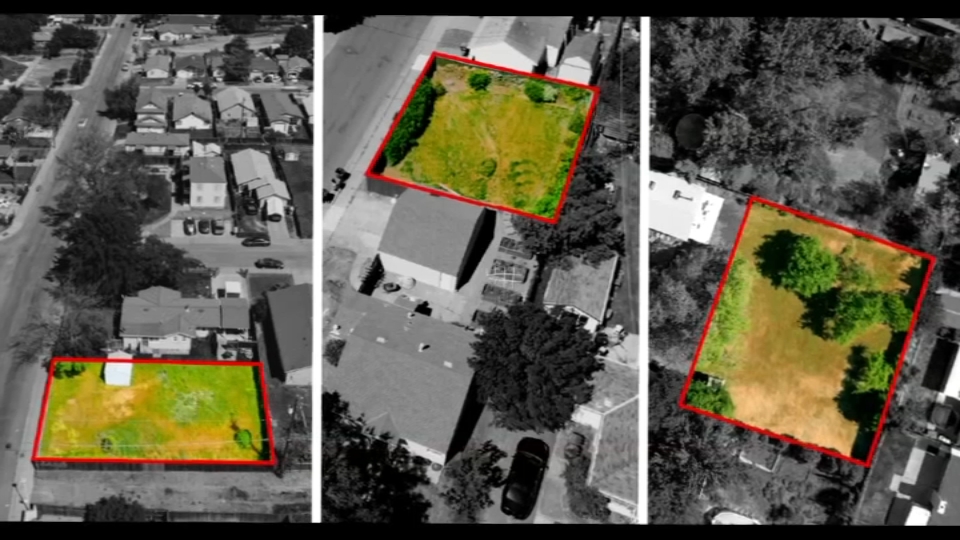Barring any unforeseen surprises or miracles, Children's Hospital in Oakland is poised to take a 13-year-old girl declared brain dead by three doctors off a ventilator, despite her family's efforts to keep the 8th grader on life support as long as her heart continued beating.
Just before 4 p.m. Monday, Jahi McMath's family announced that they are filing a new complaint in federal court requesting a temporary restraining order and an injunction to keep the girl on life support.
"We are hopeful that one of these actions will forestall the hospitals rush to extinguish Jahi's chance at life," said Omari Sealey, Jahi's uncle.
Sealey said the family has located a New York care facility that has agreed to take Jahi and have contracted an air ambulance willing to help in the transfer.
"We have a doctor here in California who will be by her side throughout the transfer," Sealey said.
A judge last week ordered the hospital to keep Jahi McMath on a ventilator until 5 p.m. Monday, unless her family appealed. The family on Monday also requested the judge extend his temporary restraining order.
"This is one of the most tragic situations imaginable," Sam Singer, a public relations consultant hired by Children's Hospital, said Monday morning. "A family has long their young daughter. But unfortunately, Jahi is deceased. No amount of hope, prayer or medical procedures will bring her back."
Jahi's family, including her mother, Latasha "Naila" Winkfiled, uncle Omari Sealey and grandmother Sandra Chatman, have been calling routine press conferences, jumping on social media, filing court papers and praying for a miracle following her Dec. 9 surgeries to cure her sleep apnea.
Local
Sealey put out on Instagram on Sunday that "we are going to fight until the very last second." And Chatman told NBC Bay Area on Monday that she is sure "Jahi will live."
The surgeries included: An adenotonsillectomy; a uvulopalatopharyngloplasty, or UPPP, which is tissue removal in the throat; and submucous resection of bilateral inferior turbinates, which is nasal obstruction.
About 30 minutes after the surgery, Jahi started coughing up blood and suffered a heart attack. She was declared brain dead for the first time on Dec. 12. Two Children's Hospital doctors came to that conclusion.
So did Dr. Paul Graham Fisher, Stanford School of Medicine Chief of Pediatric Neurology, who was appointed by Alameda County Superior Court Judge Evelio Grillo to be an independent reviewer into the case. He presented his findings to the court on Dec. 24.
Fisher said there was "electrocerebral silence," along with no eye movement, no vocalization, no gag reflex and no spinal reflex, among other things listed in his redacted notes obtained by NBC Bay Area. "Overall, unfortunate circumstances in 13-year-old with known, irreversible brain injury and non complete absence of cerebral function and complete absence of brainstem function, child meets all criteria for brain death," Fisher wrote.
Afterward, the judge ruled that Jahi was "legally dead."
But because the family are devout Christians, they believe that because Jahi's heart is beating, the girl is alive.
They enlisted the help of Dr. Paul Byrne in Ohio, a Catholic doctor who told NBC Bay Area last week that "brain death" is not "true death." And they've been working hard to find a longterm care center to take Jahi, though many had dropped out, telling her mother hat they did not want to accept a patient who had been declared dead.
The majority of Western doctors and neuro scientists agree that brain death is legal death, which is not the same as a coma or a vegetative state, from which people sometimes do emerge.
But Jahi's case is different, experts say.
Dana Smith, a PhD in psychology from the the University of Cambridge and a science writer for Brain Study, wrote that "complete brain death - as in the case of young Jahi - is very different from vegetative state or minimal consciousness; there is never any recovery from brain death."
"There is no evidence of anyone ever recovering from brain death," Smith told NBC Bay Area by phone on Monday. "They are, for all intents and purposes, no longer alive."
Arthur Caplan, director of the Division of Medical Ethics at NYU Langone Medical Center, said in a phone interview on Monday that there are a "tiny number of religious groups who don't accept brain death until there is cardiac death."
But state law considers brain death the same as "death" and Caplan said the hospital doctors got into an unusual position when they didn't simply take Jahi off the ventilator the first time the EEG came back negative.
Jahi's case could pose a slippery slope, Caplan said: "Will people run to court if they refuse to accept ...death?"
NBC Bay Area's Cheryl Hurd contributed to this report.



